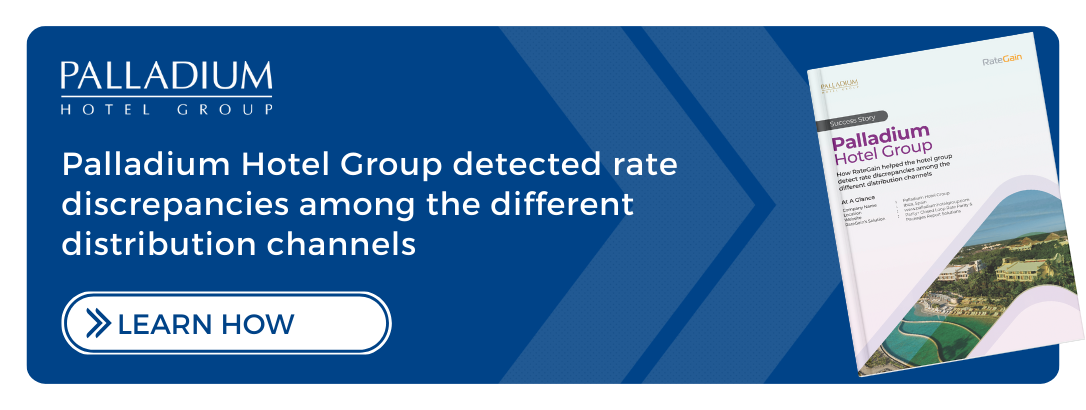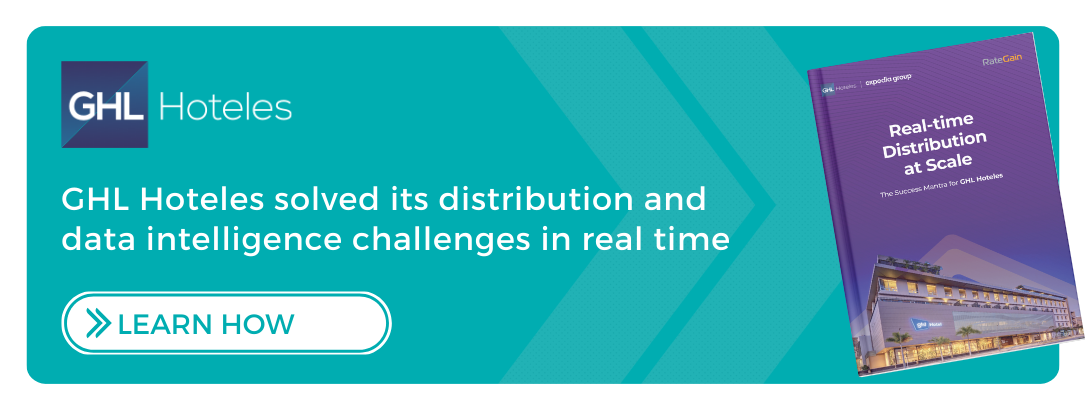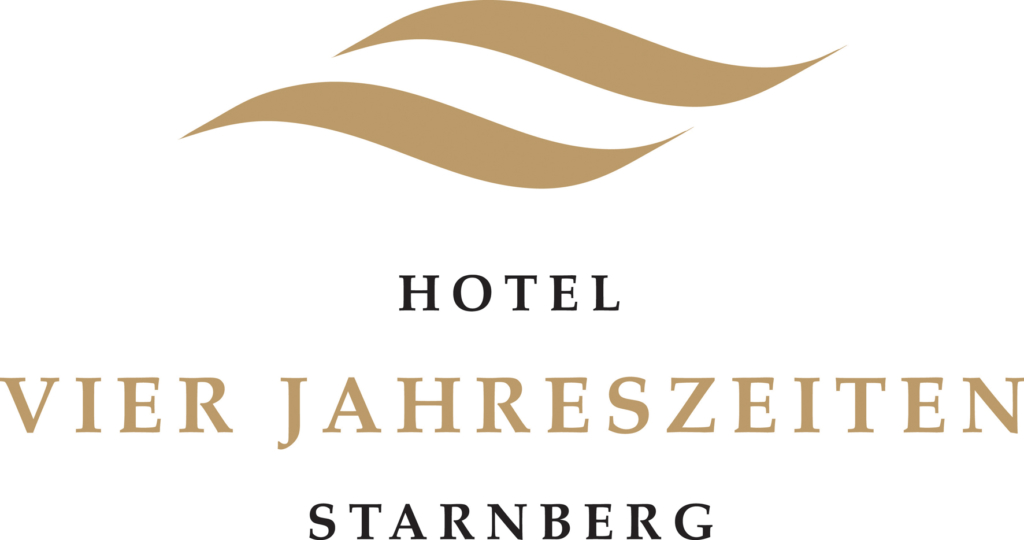In the highly competitive hospitality industry, effective distribution channel management plays a pivotal role in driving bookings and maximizing revenue. Understanding the various hotel distribution channels and how to leverage them is essential for hoteliers to stay ahead in the digital era.
But before we get on to discuss the hotel online distribution strategies and associated technologies, let us us understand the meaning and importance of distribution channels.
What is a Hotel Distribution Channel?
A hotel distribution channel refers to the platforms or channels through which hotels distribute and sell their inventory to potential guests. These channels can be online or offline and enable hotels to reach a wide audience, expand their market reach, and generate bookings.
What is the Role of Distribution Channels in the Hospitality Industry?
Distribution channels play a crucial role in the success of the hospitality industry, particularly in the hotel sector. These channels serve as the bridge between hotels and potential guests, facilitating the booking process and shaping the overall guest experience.
Here’s how hotel distribution companies play a crucial role in expanding reach and maximize revenue with a vast network of travel agents and distribution partners.
-
-
Enhancing Visibility
Distribution channels significantly contribute to a hotel’s visibility in the market. By partnering with various distribution channels such as online travel agencies (OTAs), global distribution systems (GDS), metasearch engines, and direct booking platforms, hotels can expand their reach to a wide range of potential guests.
These channels provide extensive exposure, ensuring that hotels are visible to travelers across different demographics, geographies, and booking preferences. Increased visibility leads to greater brand awareness, attracting more guests and generating higher occupancy rates.
-
Increasing Revenue
Effective distribution channel management directly impacts a hotel’s revenue generation. By leveraging multiple distribution channels, hotels can tap into diverse customer segments and capture bookings that they might not have reached otherwise.
Each distribution channel brings its own customer base and marketing capabilities, enabling hotels to maximize their revenue potential. Moreover, distribution channels often offer dynamic pricing options, allowing hotels to adjust rates based on market demand, competitor analysis, and seasonal trends. This flexibility helps hotels optimize revenue and occupancy rates, ensuring optimal financial performance.
-
Improving Guest Experience
Distribution channels play a vital role in shaping the overall guest experience. With the advent of online booking platforms, guests have become accustomed to the convenience of browsing, comparing, and booking hotels at their fingertips.
Distribution channels provide seamless and user-friendly interfaces, making it easier for guests to find suitable accommodations, explore amenities, and make reservations. Moreover, distribution channels often feature guest reviews and ratings, allowing potential guests to make informed decisions based on the experiences shared by previous visitors. By delivering a positive and streamlined booking process, distribution channels contribute to a positive guest experience from the very beginning of their journey.
-
Expanding Market Reach
One of the primary advantages of distribution channels is their ability to expand a hotel’s market reach. Through partnerships with OTAs and GDS platforms, hotels can tap into a vast network of travel agents and agencies. These channels provide access to a global audience of travel enthusiasts and corporate clients, enabling hotels to target different market segments and attract international visitors. Additionally, metasearch engines allow guests to compare prices and amenities across multiple platforms, helping hotels reach price-sensitive travelers and gain a competitive edge. By diversifying distribution channels, hotels can reach new markets and unlock untapped revenue streams.
-
Read Why: Metasearch is critical for your Direct Bookings Strategy
-
Strengthening Relationships with Partners
Distribution channels foster collaboration and partnerships within the hospitality industry. By working closely with OTAs, GDS providers, and other distribution partners, hotels can establish mutually beneficial relationships.
These partnerships often involve joint marketing campaigns, targeted promotions, and preferred placement on distribution platforms. By cultivating strong alliances, hotels can leverage the marketing expertise and customer base of these partners, resulting in increased visibility and bookings.
-
Revenue Optimization with Expert Advice
Hotel distribution companies possess valuable expertise and insights into the hospitality industry. They can provide hotels with expert advice on revenue optimization strategies, pricing tactics, and market trends. These companies have access to data analytics tools that help identify patterns, booking trends, and demand fluctuations, enabling hotels to make informed decisions to maximize revenue.
Through regular performance analysis and reporting, hotel distribution companies help hotels identify underperforming channels, adjust pricing strategies, and implement targeted marketing campaigns. With their in-depth knowledge of the industry, these companies offer guidance on positioning the hotel within the market, identifying unique selling points, and differentiating from competitors.
By strategically selecting and managing distribution channels, hotels can effectively position themselves in the market, attract a diverse range of guests, and achieve long-term success.
But to do so, we must understand the different types of online hotel distribution channels.
Which are the Most Popular Types of Hotel Distribution Channels?
Common hotel distribution channels include online travel agencies (OTAs), global distribution systems (GDS), direct bookings through the hotel’s website, metasearch engines, and wholesalers. By utilizing multiple distribution channels, hotels can increase their visibility and accessibility to potential guests.
-
-
Online Travel Agencies (OTAs)
OTAs such as Expedia, Booking.com, and Agoda are popular distribution channels that provide a platform for hotels to showcase their inventory to a global audience. They offer a wide range of accommodation options and allow travelers to compare prices and book rooms conveniently.
-
Global Distribution Systems (GDS)
GDS platforms like Amadeus, Sabre, and Travelport serve as intermediaries between hotels and travel agents. They provide a centralized system for travel agents to access real-time information about hotel availability, rates, and bookings.
-
Direct Bookings
Direct bookings refer to reservations made directly through a hotel’s website or reservation system. This distribution channel enables hotels to establish a direct relationship with guests, offering benefits such as higher profit margins and the opportunity to provide personalized experiences.
-
-
-
Metasearch Engines
Metasearch engines like Google Hotel Search, Trivago, and Kayak aggregate hotel information from various sources and allow users to compare prices and book directly through the platform. They provide a convenient way for travelers to find the best deals and make informed booking decisions.
-
Read More: Metasearch Engines: A Game Changer for Online Businesses
-
-
Wholesalers
Wholesalers purchase hotel inventory in bulk and distribute it to specific markets or travel segments. They often target niche markets and cater to specific customer needs, such as group travel or package deals.
-
Read More: How to Benefit from Hotel Wholesalers
What are the Key Aspects of Effective Key Channel Management?
-
-
Rate Parity
Rate parity refers to the consistency of rates across all distribution channels. It ensures that the same room is available at the same price, regardless of the booking platform. Maintaining rate parity is crucial for a hotel’s reputation and guest loyalty. By enforcing rate parity, hotels avoid rate discrepancies that could lead to customer confusion or dissatisfaction. Rate parity also fosters fair competition among distribution channels, preventing price undercutting and maintaining a level playing field for all partners.
To achieve rate parity, hotels can implement automated channel management systems that synchronize rates and availability across all platforms in real-time. These systems help hotels maintain rate integrity, reduce manual errors, and ensure consistent pricing for guests.
-
Inventory Management
Effective inventory management is vital to avoid overbooking or underselling rooms. Hotels must allocate inventory across different distribution channels to maximize occupancy and revenue. By implementing a centralized inventory management system, hotels can have a real-time overview of their available rooms and distribute them strategically across channels.
Inventory management systems also enable hotels to implement restrictions and control room allocations based on factors such as room type, rate plans, and booking window. This ensures that inventory is appropriately allocated to different channels, optimizing revenue while avoiding overbooking situations.
-
Read More: How do Hotels Distribute Inventory to Drive Bookings
-
-
Channel Optimization
Optimizing distribution channels involves selecting the most relevant and profitable channels for a hotel’s target audience. Hotels should evaluate the performance of each channel based on factors such as booking volume, revenue generated, and customer acquisition costs. By identifying the channels that deliver the best results, hotels can allocate resources and marketing efforts effectively.
Additionally, channel optimization involves continuously monitoring and adjusting the distribution mix based on market trends, customer preferences, and competitor analysis. By staying informed about changing market dynamics, hotels can adapt their distribution strategy to maximize revenue and reach the right audience.
-
-
Performance Analysis
Regular performance analysis is crucial to evaluate the effectiveness of distribution channels and make data-driven decisions. Hotels should track key performance metrics such as conversion rates, average daily rate (ADR), revenue per available room (RevPAR), and return on investment (ROI) for each distribution channel.
Analyzing performance metrics helps hotels identify underperforming channels, identify areas for improvement, and make informed decisions about resource allocation and marketing strategies. By leveraging data analytics tools and reports, hotels can gain valuable insights into customer behavior, booking patterns, and channel performance, empowering them to optimize their distribution strategy.
-
Streamlining Operations
Efficient distribution channel management goes beyond revenue optimization. It also involves streamlining operations and ensuring consistent branding across all channels. Hotels should maintain consistent and accurate information across all distribution platforms, including room descriptions, amenities, and images. Any updates or changes should be promptly reflected across all channels to avoid guest confusion and maintain brand integrity.
Moreover, streamlining operations involves automating processes wherever possible. Utilizing channel management software, property management systems, and booking engines can help hotels automate inventory distribution, update rates, and availability in real-time, and seamlessly manage reservations.
Embracing the Digital Era: Hotel Online Distribution Strategies
In the digital age, hotels need to adapt to changing consumer behavior and leverage online distribution strategies to stay competitive. By adopting these strategies and leveraging technology, hotels can effectively navigate the online landscape and create a strong online presence.
-
Responsive Website Design
In the era of mobile devices and increasing online bookings, having a responsive website design is crucial for hotels. A responsive website ensures that your hotel’s website is optimized for different screen sizes and provides a seamless user experience across devices. With more travelers using smartphones and tablets to research and book accommodations, a responsive website design improves accessibility, engagement, and conversion rates. It also enhances your search engine rankings and boosts your online visibility, ultimately driving more direct bookings.
-
Search Engine Optimization (SEO)
To increase your hotel’s online visibility and attract more organic traffic, implementing effective search engine optimization (SEO) strategies is essential. SEO involves optimizing your website’s content, structure, and metadata to rank higher in search engine results. By researching relevant keywords, optimizing page titles and descriptions, and creating high-quality, keyword-rich content, you can improve your hotel’s visibility on search engines like Google. This, in turn, drives targeted traffic to your website, increases brand exposure, and boosts direct bookings. Regularly monitoring and refining your SEO efforts will help you stay ahead of the competition and attract more guests through organic search.
-
Social Media Marketing
Social media platforms have become powerful marketing tools for hotels. Creating a strong social media presence allows you to engage with potential guests, showcase your property’s unique features, and build brand loyalty. By crafting compelling content, sharing stunning visuals, and leveraging user-generated content, you can create a strong emotional connection with your target audience. Social media platforms also offer advertising options that enable you to target specific demographics and reach potential guests. Integrating social media marketing into your online distribution strategy can amplify your brand’s reach, increase engagement, and drive traffic to your website, ultimately leading to more direct bookings.
-
Online Reputation Management
In the digital era, online reviews and guest feedback play a significant role in travelers’ decision-making process. Effective online reputation management involves actively monitoring and responding to guest reviews across various platforms. By promptly addressing guest concerns, expressing gratitude for positive feedback, and implementing guest feedback to improve your operations, you can enhance your hotel’s reputation and build trust with potential guests. Positive online reviews and a strong reputation contribute to increased bookings and word-of-mouth recommendations. Implementing reputation management tools and encouraging guests to leave reviews can help you proactively manage your online reputation and maintain a positive brand image.
-
Technology for Streamlining Online Distribution
Advancements in technology have revolutionized hotel distribution channel management. By adopting the right technology solutions, hotels can automate processes, improve efficiency, and gain a competitive edge in the dynamic distribution landscape.
- Channel Manager: A channel manager is a software solution that helps hotels manage rates, availability, and inventory across multiple distribution channels from a centralized platform. It automates the distribution process, ensuring that room information is up to date across all channels, minimizing the risk of overbooking or rate discrepancies.
- Property Management Systems (PMS): A hotel property management system is a comprehensive software tool that assists hotels in managing their daily operations, including reservations, guest profiles, check-ins, check-outs, and billing. Integration with distribution channels allows seamless management of room inventory and rates.
- Customer Relationship Management (CRM) Systems: CRM systems enable hotels to maintain and manage guest data, preferences, and interactions. By understanding guest preferences and behavior, hotels can personalize their offerings, enhance guest satisfaction, and cultivate loyalty.
- Revenue Management Systems (RMS): RMS software helps hotels optimize their pricing strategies based on market trends, competitor rates, and demand forecasting. It enables hoteliers to dynamically adjust room rates to maximize revenue and occupancy.
- Online Reputation Management Tools: These tools assist hotels in monitoring and managing their online reputation by tracking guest reviews and feedback across various review platforms. By promptly responding to reviews and addressing guest concerns, hotels can maintain a positive online presence and attract more bookings.
How to Build a Hotel Distribution Channel Strategy
Building a successful hotel distribution channel strategy involves several key steps.
- Identify the target market and guest preferences.
- Select relevant distribution channels based on the target audience.
- Consider channel costs, commission rates, and potential long-term partnerships.
- Implement a channel management system to streamline operations and manage inventory.
- Regularly monitor and analyze channel performance to optimize effectiveness.
Best Practices for Maximizing Distribution Channel Performance
In the dynamic landscape of hotel distribution, maximizing the performance of distribution channels is crucial for hotels to stay competitive and drive revenue. By regularly auditing channels, managing pricing and rates strategically, optimizing content, proactively managing guest reviews, and staying abreast of industry trends, hotels can enhance their distribution channel performance and effectively reach their target audience.
-
Regular Channel Audits
Performing regular channel audits allows hoteliers to evaluate the performance and effectiveness of their distribution channels. By analyzing metrics such as bookings, revenue, conversion rates, and channel costs, hotels can identify any underperforming channels and make informed decisions to optimize their distribution mix. It’s essential to assess factors like channel reach, target audience alignment, and cost-effectiveness to ensure optimal channel selection and allocation of resources. Regular audits also help identify any technical issues or discrepancies that may impact the guest booking experience and can be addressed promptly.
-
Pricing and Rate Management
Effective pricing and rate management is vital for maximizing distribution channel performance. Hoteliers should adopt a dynamic pricing strategy based on market demand, seasonality, and competitor analysis. By leveraging revenue management systems and rate intelligence tools, hotels can set competitive rates that optimize revenue while considering channel-specific pricing rules. It’s crucial to monitor rate parity across distribution channels to maintain consistency and avoid rate disparities that may lead to guest dissatisfaction or loss of bookings. Regularly analyzing pricing data and adjusting rates based on demand fluctuations contribute to improved channel performance.
-
Content Optimization
Optimizing content across distribution channels ensures consistency and provides compelling information that drives guest engagement and conversions. Hoteliers should focus on creating high-quality descriptions, captivating visuals, and accurate room information to entice potential guests. Tailoring content to suit the target audience of each channel enhances relevancy and attracts qualified leads. Additionally, optimizing keywords and metadata improves search engine visibility and increases the chances of appearing in relevant searches. Regularly updating content with fresh images, room descriptions, and promotional offers maintains the interest of potential guests and drives bookings.
-
Guest Reviews Management
Managing guest reviews is critical for maintaining a positive online reputation and driving bookings through distribution channels. Hoteliers should actively monitor and respond to guest reviews across platforms promptly. Responding to both positive and negative reviews demonstrates attentiveness and engagement with guests. Addressing concerns, expressing gratitude for positive feedback, and resolving issues in a timely manner can significantly influence potential guests’ perception and decision-making. Encouraging guests to leave reviews and leveraging guest feedback to improve services and operations showcases a commitment to guest satisfaction, enhancing the reputation and performance of distribution channels.
-
Staying Updated with Industry Trends
The hospitality industry is continuously evolving, driven by technological advancements and changing guest preferences. Staying updated with industry trends and adopting innovative practices helps hoteliers adapt and optimize their distribution channel performance. Engaging in industry forums, attending conferences, and following industry publications enable hoteliers to gain insights into emerging trends, technology solutions, and best practices. Embracing new distribution platforms, adopting new technologies, and understanding evolving guest behaviors empower hotels to stay ahead of the competition and maximize the effectiveness of their distribution channels.
Distribution channels are the lifeblood of the hotel industry, connecting hotels with potential guests across the globe. By understanding the intricacies of hotel distribution channels and effectively managing them, hoteliers can enhance their visibility, drive bookings, and increase revenue.
 Deutsch
Deutsch Português
Português Italiano
Italiano Espanol
Espanol čeština
čeština ไทย
ไทย Français
Français






